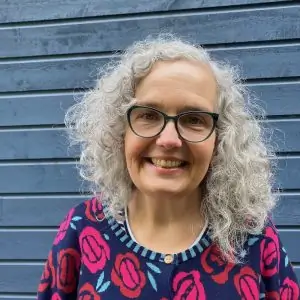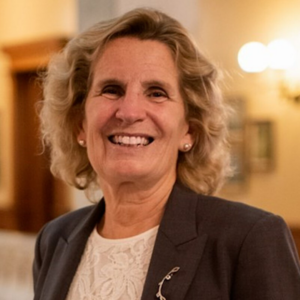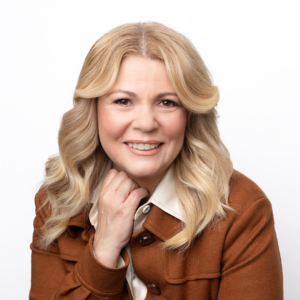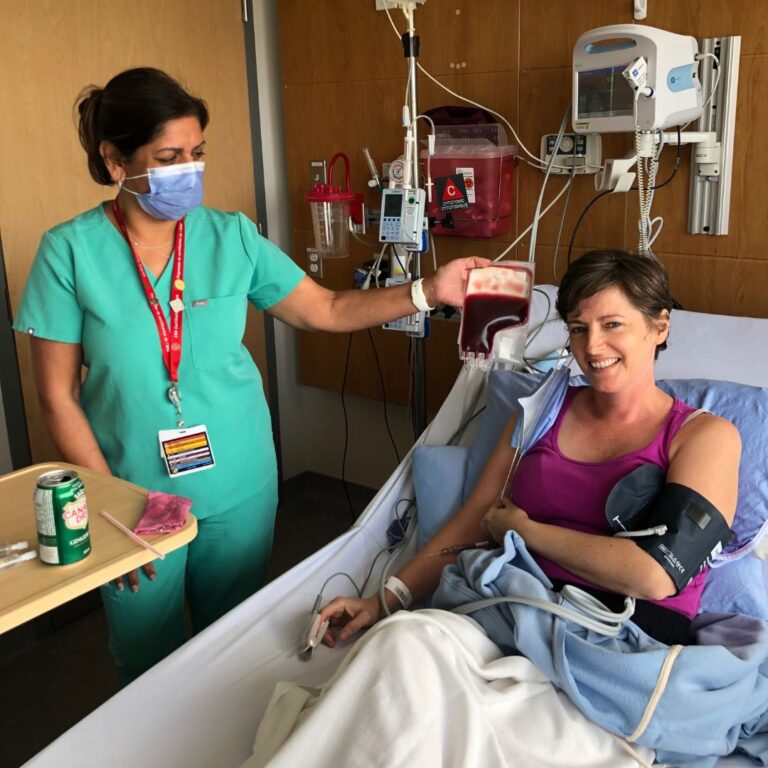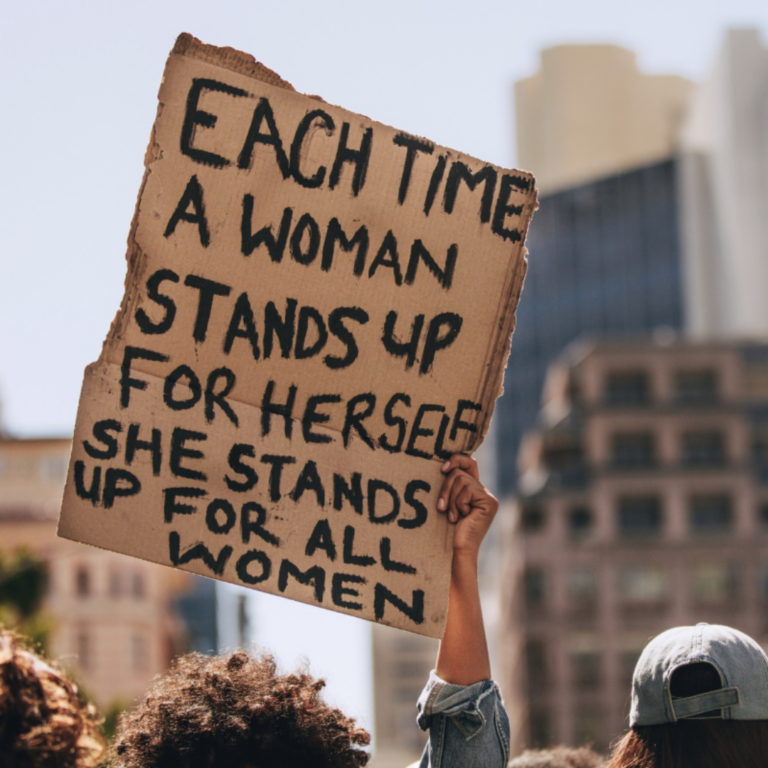Mary Walsh – actor, writer, comedian, activist, mother, and a Canadian treasure
Mary Walsh is a Newfoundland actor, writer, comedian, activist, mother … and a Canadian treasure who has created and starred in some of this country’s most iconic TV shows, including CODCO and This Hour Has 22 Minutes.
She has received the Order of Canada, the Governor General’s Lifetime Achievement Award, and several honorary degrees; she has written a novel and worked in numerous films and other TV productions; and is a noted advocate for mental health and addiction awareness. In this deeply personal and compelling episode of The Honest Talk, Mary talks candidly with Jen and Catherine about addiction, abandonment, and why she only gets happier as she gets older.
(Note: This transcript has been edited for length and clarity.)
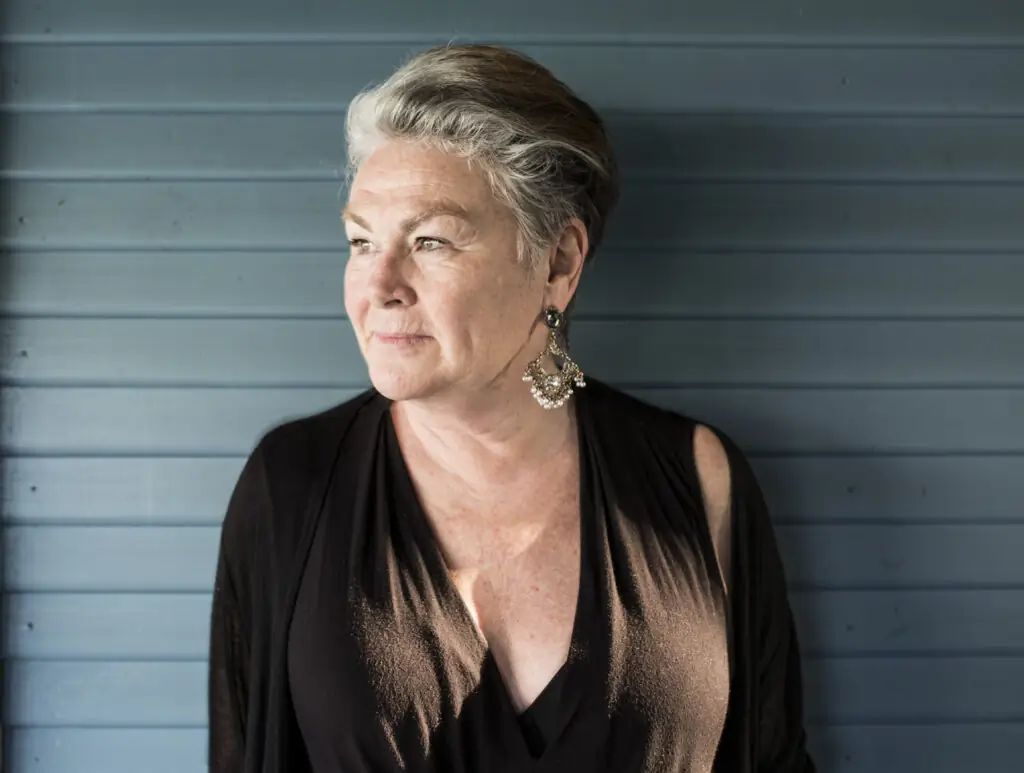
Becoming your true self
Catherine Clark: How are you doing? How is the pandemic treating you, Mary?
Mary Walsh: I hate to say this because it is so difficult for so many people, but I have been having a good pandemic; it’s allowed me to reflect which is something I’ve never been very good at. It allowed me to come to terms with myself in some kind of way.
When I was a young woman, if you didn’t have a partner, you were totally dismissible. You weren’t anyone. And the notion of ending up as a spinster was such a horrendous notion. I was born in 1952, so things were changing. I was part of a consciousness-raising group in the ‘70s, while I was living with somebody who was hitting me, and one of the things that I did reflect on during the pandemic was how paradoxical our lives are, how we can have two opposite things going on at the same time.
So that notion of, finally, not trying to be someone else, finally coming around to being the subject of your own life, and to stop desperately trying to be the object of somebody else’s desire. It’s given me that last little push to come into myself, which I think happens to us all as we age.
Jennifer Stewart: You talk about finding your true self. Not to get too philosophical, but what does that person look like to you?
Mary Walsh: She’s a lot happier. That’s what I’ve noticed. I read some excellent scientific research that said that as men and women get older, we get happier. I’ve noticed that in myself: sometimes I’ll be reading something, and I’ll be smiling like an idiot. I’ve spent my life being very judgemental of things, whereas now I watch the most asinine stuff on TV and I’ll notice that I’m smiling.
I’m still impatient and there are things in my life that I’d like to change but that I seem to have no control over changing. Someone said to me, “We won’t be able to see who we are until we know who we are and accept that person. And then you can change from there.” But it has to be awareness and acceptance, and then action. So the lockdown has given me time to get closer to the person I am.
Jennifer Stewart: You mentioned publicly that everyone in your family was funny. When did you realize you also had a gift for being really funny?
Mary Walsh: Most Newfoundlanders are funny, and if you’re not funny and you live in Newfoundland, you might as well just hang yourself because your mother might not feed you anyway. So, everybody has a turn of phrase, a way of looking at things that is skewed or slightly off.
People are wry and dry, none of which I am, I wouldn’t say, and I was the most unfunny person in my family. I would say something which I thought was dead funny and the room would go really quiet.
We weren’t jolly funny, we were mean funny. We were making fun of people, they were constantly mocking each other. And I didn’t even really grow up with my family — I grew up with my aunt and uncle next door — until they moved away when I was 11 and, again, neglected to take me with them.
Catherine Clark: Why did you live with a different part of your family?
Mary Walsh: That’s something that tortured me for a long, long time. The story I got very late when I was brave enough to ask, was I had pneumonia when I was eight months old. The house was damp, but next door was dry so that’s where they took me when I came out of hospital so I would be warm and dry.
And then they, I don’t know, forgot to give me back or the people next door never came over to get me. It was such a dark part of my psyche, but as I get older I see that in that paradoxical way it was also a great blessing.
Jennifer Stewart: Did you develop a strong relationship with your maternal mother as you got older?
Mary Walsh: No, no, no. She must have been warm in some ways, but I would never dare have any relationship with Mom. I did spend some time with her and stuff like that and found her dead funny.
Catherine Clark: You’ve said the secret of your life was to hang on long enough to get used to being alive. What does that mean?
Mary Walsh: When I was a teenager, people would say, “Enjoy yourself now because this is the best time in your whole life.” And I thought, if this is the best time of my life, I am just going to go leap off Signal Hill. It was not true, that wasn’t the best time. I always pretended to know what I didn’t know, and I knew nothing. How would I know anything? I was only around for 15 years.
So that state of always pretending to know what you don’t know, and always being caught out not knowing, and always having to pretend to be something that you weren’t. And the whole thing of being a young woman trying to be a worthy object of somebody else’s desire — I am so happy that’s behind me.
I think after a while you just get used to being alive and you know who you are, and you learn better how to deal with the world and what the people of the world throw at you.
Seeking help and staying sober
Jennifer Stewart: You’ve been a huge advocate for mental health and substance abuse. When did you start having substance abuse issues? And when did you seek help?
Mary Walsh: I had them for a very long time. The first time I ever got drunk, I went into a blackout. I drank alcohol even when I was young and I was a working alcoholic for a long, long time. But I changed it because of my son. I realized that this could not go on.
I didn’t feel happy about it because as an alcoholic you think that’s what’s killing you is your best friend and you don’t know how you’re ever going to live without it. It is a terrible leap off the edge of the world, but I knew there was no other option available to me at that point.
Jennifer Stewart: How did you get help, Mary?
Mary Walsh: I went on tour with CODCO because we had a new book that Helen Peters had gathered together, The Plays of CODCO. I had stopped maybe a week or two before, and I could not stop crying. And Cathy Jones, who was a big alternative health person, told me to go see this physical therapist.
So I went to him and I was crying all the time, talking about my mother, and he suggested that maybe I should call a 12-step program. But I have continued, one day at a time, to stay sober for 28 years. When I was an active alcoholic, I thought I was all alone, but when I look back on my life and how many people carried me through things, and the kindness that people showed me and the absolute dedication they had to helping me along the way, I am flabbergasted.
Becoming happier with age
Catherine Clark: You’ve been doing a lot of research into aging. Why have you been doing that and how has it changed how you live your life?
Mary Walsh: Well, it’s helped me feel happier. There’s no guarantee that we will have a happier old age, but it is the norm, they say, in the same way that many have a very disturbed adolescence. The norm is that no matter what our social standing is, or our physical health is, or our economic health, we will have a happier old age. Not that the balloons are going up in the air, the fireworks are going off, but if we were unhappy, we will be slightly less unhappy.
I love that because I read somewhere years and years ago that life was full of a thousand tendernesses, and it really touched me then, even though I didn’t really believe that. But now I do. I was thinking of all the people I’ve lost over the years. We keep losing more and more until we finally have the big loss, and we’re kind of ready for it in a way. We’ve rehearsed it so that we are ready to go down that road at the end.
(Note: This transcript has been edited for length and clarity.)

